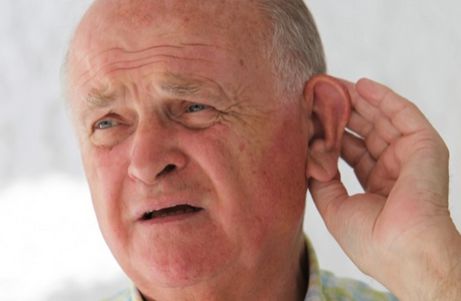
There are more than 100 factors that can cause hearing loss in adults. However, some of these are very rare. In this article, we will examine some of the more common causes of hearing loss in adults. Note: if you think you may be experiencing hearing loss, consult your doctor. The most common cause of all is earwax build-up, but you should on no account attempt to clean out the sensitive ear canal yourself.
Middle ear infections
A middle ear infection is very painful because it results in a build-up of fluid and pressure behind the eardrum. If it is left untreated or is treated too late, perforation of the eardrum will result (some people call this a burst eardrum). It can also re-arrange the delicate bones in the middle ear that play a vital role in transmitting sound.
Noise
Very loud noises can damage the sensitive hair cells that pick up vibrations in the inner ear. One, extremely loud noise is sufficient to cause this kind of damage, but generally speaking, this kind of hearing loss is caused by long-term exposure to overly loud sounds that people regard as more bearable. It is essential that ear protection should be used when using certain power tools and listening to very loud music, especially over earphones should be avoided. Damage to the hair cells is irreversible.
Trauma
In most cases, the injury is to the eardrum. A very loud sound can cause it, but the commonest cause is the use of objects to dislodge wax from the ear. Nothing smaller than your elbow should be inserted in your ear!
Otosclerosis
This type of hearing loss is often genetic. One or more of the tiny bones in the middle ear grows too large and the bones are no longer able to vibrate normally in response to sounds. In some cases, surgery can be used to correct this.
Acoustic neuroma
An acoustic neuroma causes gradual hearing loss over a period of time. It is a small tumour, unrelated to cancer that grows on one of the acoustic nerves that transmit sound from the ear to the brainstem. Other effects of an acoustic neuroma are dizziness and problems with balance.
Menieres disease
In Menieres disease, fluid builds up in the inner ear causing hearing loss as well as vertigo and ringing in the ears. Menieres disease usually occurs in outbreaks that last for a while before receding, however, it damages the hair cells causing progressive hearing loss.
Sudden sensorineural hearing loss
This condition usually only affects one ear, but both ears can be affected. Viral diseases are thought to be the most common cause of this type of hearing loss and if treatment is sought early it is possible to recover completely.
Medications
Hearing loss is a possible side effect of certain medications. If you are experiencing ringing in your ears or have other reasons to suppose that your medication may be causing hearing loss, consult your doctor immediately. Do not use over the counter pain medications excessively, since this has been linked to hearing loss.
Age
In most cases, this type of hearing loss becomes noticeable after the age of 60. Hearing loss is very gradual as certain frequencies become more difficult to hear. Many elderly people dont even notice that they are becoming harder of hearing.
It may also surprise you to learn that obesity and herpes infections have also both been implicated in hearing loss in adults.